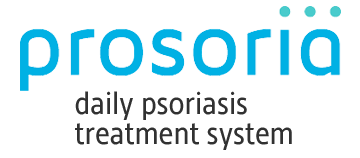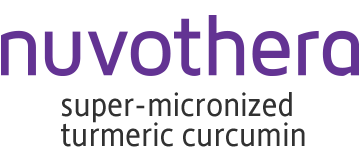
If you have an itch that just won't leave you alone -- along with blotches of red on your skin, you probably have a chronic skin condition that needs attention.
Dry, scaly and irritated skin can be due to a number of skin conditions. Two that can sometimes appear similar but are very different are psoriasis and eczema (atopic dermatitis). Both are skin conditions with similar symptoms but there are important differences in what causes them, their symptoms, and how they are treated and managed. It’s important to understand the differences between psoriasis and eczema so you can manage them appropriately.
Psoriasis and Eczema Feel Different
Eczema causes an intense itch. It can itch so bad that you scratch enough to make your skin bleed.
Psoriasis can also be itchy, but there's something else going on. Your skin may sting or burn or feel painful. Some people say it feels like getting bitten by fire ants.
Psoriasis and Eczema Look Different
Eczema makes your skin look red and inflamed. It usually appears as a rash, may be scaly, oozing, or crusty. You may see rough, leathery patches that are sometimes dark. It can also cause swelling. It’s known as the “itch that rashes”. Another name for eczema is atopic dermatitis.
Psoriasis can also cause red patches. They may be silvery and scaly -- and raised up high. But if you look closely, the skin is thicker and more inflamed than with eczema. The skin is usually flaky on the patches of dry skin.
Psoriasis and Eczema Show Up Differently
Eczema often appears on parts of your body areas that bend, like your inner elbow or behind your knees. You can have it on your neck, wrists, and ankles. Babies sometimes get it on their chin, cheeks, scalp, chest, back, arms, and legs. It looks more like a rash. It’s often associated with asthma or allergies.
Psoriasis often shows up on places like your:
- Elbows
- Knees
- Scalp and face
- Lower back or stomach
- Palms of your hands
- Soles of your feet
You may also have patches on other areas, such as:
- Fingernails and toenails
- Mouth and lips
- Eyelids
- Ears
- Skin folds
Psoriasis and Eczema Have Different Triggers
Eczema usually results from things that irritate your skin, like:
- Soaps
- Detergents, cleaning chemicals
- Disinfectants
- Juices from produce or meats
- Stress
- Increased body temperature
Allergens can also set off eczema, including:
- Dust
- Pet hair
- Pollen
- Mold
- Dandruff
- Food allergies
Infections can start up eczema, and so can stress, sweating, heat, humidity, and changes in hormones.
Psoriasis shares some of the same triggers, including stress and infection. Specific triggers for psoriasis include:
- Infections
- Cold weather
- Dry air from heaters
- Dry skin
- Excess alcohol consumption
- Smoking
- Stress
- Gluten
- Nightshades
- Being overweight
- Taking certain medications such as blood pressure medications, antimalarials, or lithium.
Psoriasis and Eczema Start at Different Ages
Eczema usually starts in babies or young children. Often, symptoms improve as the child with eczema grows up. If you have a relative with eczema you are at greater of inheriting the condition.
It's less common, but possible, to get eczema as an adult. When that happens, it's usually because there is a related condition such as thyroid disease, hormone changes, or stress.
Psoriasis more commonly shows up between ages 15 and 35. People can get psoriasis when they are older, commonly after 50 as well. It's rare for a baby to have it. Psoriasis is also a genetic condition. So, it is more likely to show up in people who have a relative with psoriasis.
Psoriasis and Eczema are Linked to Different Conditions
Eczema usually comes along with dry, sensitive skin. People with eczema may have a family member with asthma or hay fever.
Psoriasis is linked to other serious health conditions. People with psoriasis may have other comorbidities such as heart disease, diabetes, inflammatory bowel disease, or depression.
Psoriasis and Eczema are Treated Differently
Eczema treatment depends on how severe it is. The treatment goal is to keep eczema symptoms under control. A variety of prescribed topicals such as steroids or non-steroidals are used for eczema treatment, in addition to over-the-counter medications such as various creams and ointments for daily bathing and moisturizing. Prescription medications are added to the daily skin care regimen when itching and rash from atopic dermatitis are not well controlled. Prescription medication is also required if there is an infection.
Psoriasis treatment also depends on how severe it is. As with eczema, the treatment goal is to keep the symptoms under control. If it is mild to moderate psoriasis, psoriasis symptoms can be controlled with over-the-counter medications, natural remedies for psoriasis, and avoiding triggers. Most treatment plans for mild psoriasis involve the use of topical treatments, including moisturizers, creams, and tar shampoo. The types of topical Rx and OTC treatments include:
- Topical Corticosteroids – These are the most frequently prescribed form of treatment forplaque psoriasis in the early stages. Topical Corticosteroids can help to relieve itching and reduce skin inflammation to reduce the appearance of the skin patches.
- Anthralin – Anthralin helps to slow down and regulate the rapid skin cell growth while also removing scales and promoting smoother skin.
- Topical retinoids – Retinoids are derived from vitamin A and can help to reduce inflammation and encourage the shedding of dead skin cells.
- Coal tar – Coal tar is a derivative of coal and can help with itching, inflammation, and scaling.
- Salicylic acid – Salicylic acid helps reduce inflammation, scaling, and promote the shedding of dead skin cells.
Living with Psoriasis vs. Eczema

A Life with Psoriasis
Although psoriasis comes and goes over time, it’s a lifelong condition. Currently, there is no cure for psoriasis. However, regular and continuous treatment can keep the symptoms under control. A lack of public understanding about psoriasis causes many people with this condition to feel isolated and ostracized.
Psoriasis symptoms can be managed with the right approach. Learn more about living well with psoriasis. Avoid isolation and get involved with support groups. Try to maintain healthy habits. Keep a positive mindset. Reduce the appearance of flareups.
There are various psoriasis creams and lotions on the market, both prescription and over the counter, but many people find success with the more natural remedies for psoriasis. Prosoriais a topical treatment that contains some of the most potent clinical strength and natural ingredients to treat the symptoms of psoriasis effectively and safely. Most people get significant results within twelve weeks of continued use.
A Life with Eczema

Just as with psoriasis, people with eczema often experience “off-and-on” symptoms for many years. At times, the condition can be so serious that it restricts activity. At other times, people with eczema hardly notice their condition. Understanding the differences between psoriasis and eczema can help you recognize and appropriately treat your condition.
.

